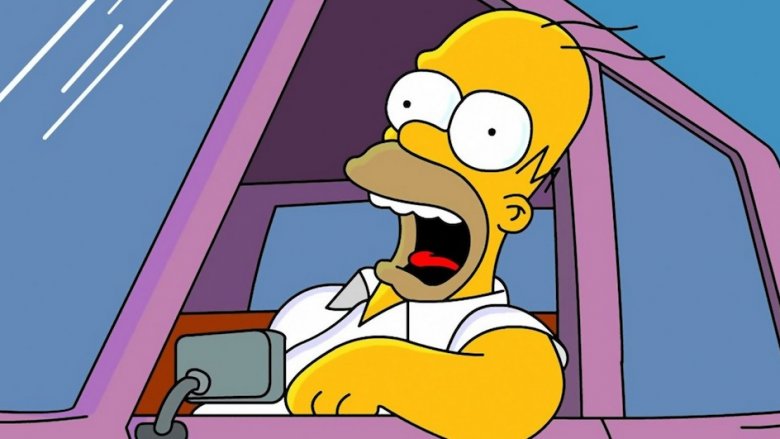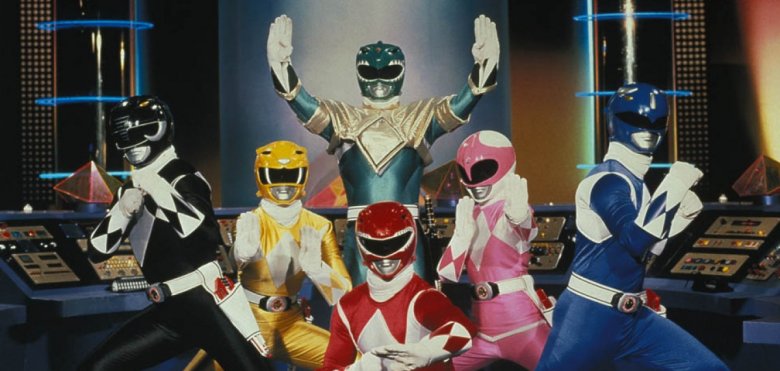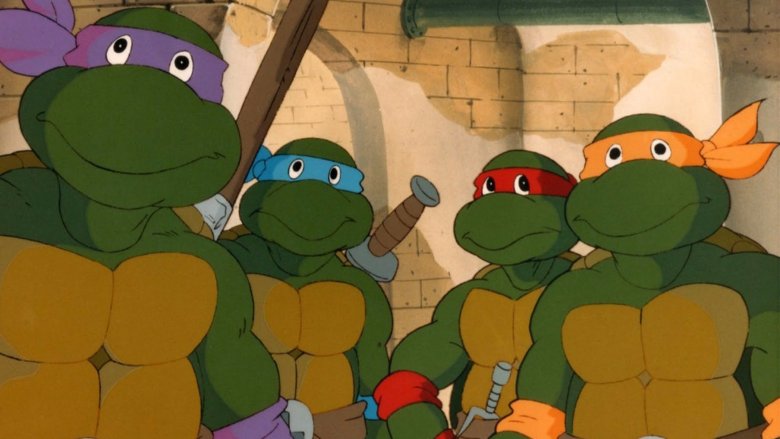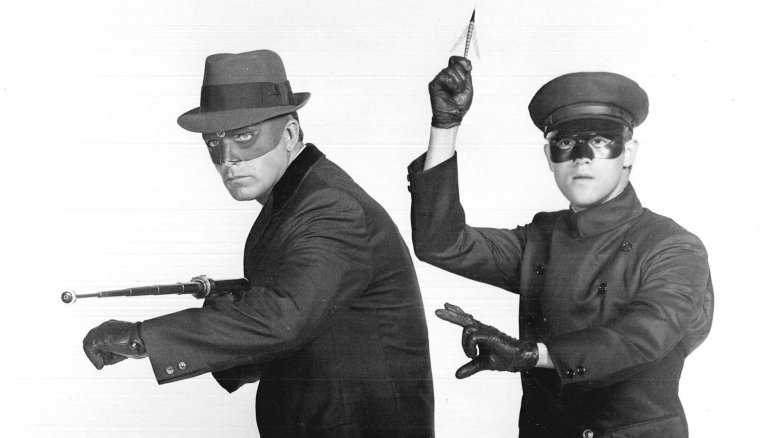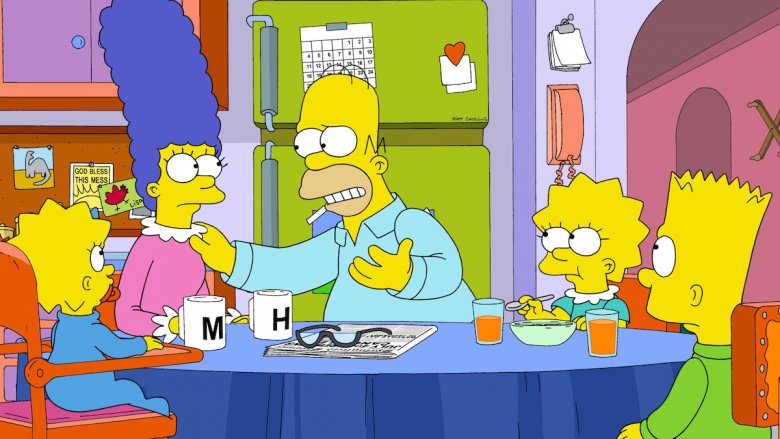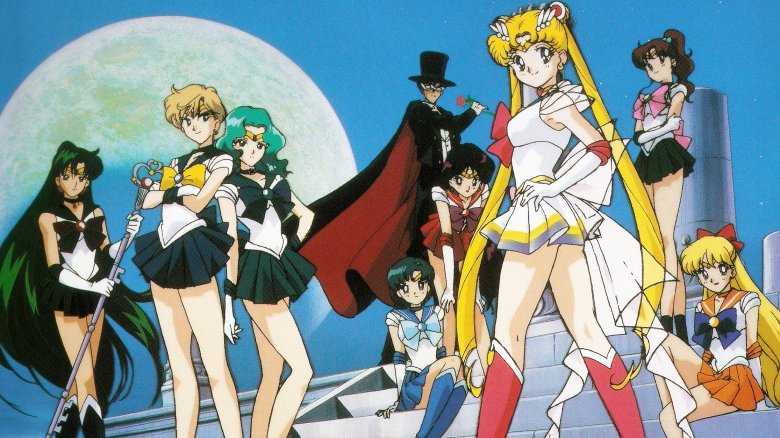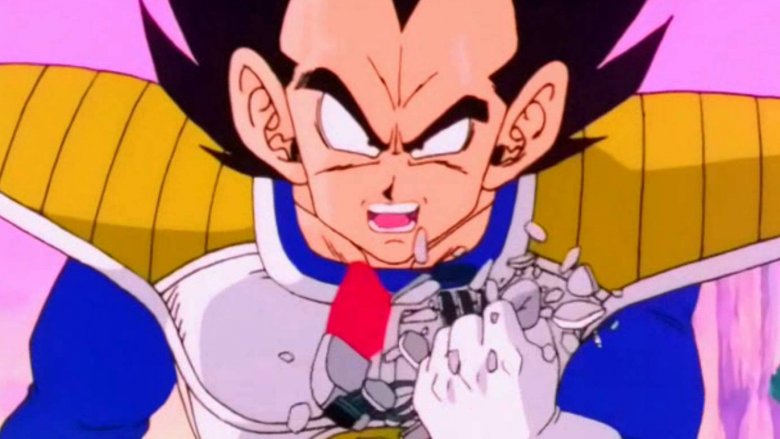TV Viewers Who Saw A Different Version Of The Show Than You
Popular television shows are often repackaged and marketed to foreign audiences—and sometimes, they go through some fairly substantial changes along the way. By the time these hit series landed on foreign shores, they were very different from the versions recognized by the fans back home.
The Power Rangers didn't morph in Malaysia
The Mighty Morphin Power Rangers introduced an entire generation of children to three of the most awesome things Japan has contributed to pop culture: primary colored heroes kicking things so hard they explode, giant robots suplexing equally giant monsters through buildings made of cardboard, and cheesy guitar riffs over the top of fight scenes. Famously cobbled together from a bunch of Japanese shows by an enterprising Iranian businessman named Haim Saban, Power Rangers was a show mainly intended to sell toys—and caused its fair share of controversy, mostly courtesy of parent groups who complained it encouraged violence.
The most unusual controversy erupted in Malaysia, where censors felt the word "morphin'" sounded too close to "morphine" and subsequently removed the show from the air. After complaints from fans, censors relented and allowed the show to come back on one condition: they removed every utterance of the word and took it out of the title. As a result, in the Malaysian version of Mighty Morphin Power Rangers, the words "It's morphin' time!" were never screamed dramatically straight into the camera. At that point, is it even the same show?
The Teenage Mutant Ninjas Turtles weren't ninjas in the UK
Teenage Mutant Ninja Turtles is perhaps one of the most efficient and informative titles for a series ever devised—it tells you literally everything you need to know about the show, the characters, and what you can expect from any given episode. Yet despite the world being in near-unanimous agreement for decades that ninjas are all kinds of awesome, British censors in the '80s weren't so hot with marketing them to kids, and when Ninja Turtles was syndicated to U.K. broadcasters, they were told to cut any mention of the word ninja.
Luckily, the word was mostly used in the title and theme song, which could easily be edited to replace "ninja" with "hero." Several scenes still ended up being removed wholesale, creating minor continuity problems—and editors really had problems when it came to removing the weapons the Turtles used to defeat their foes, particularly Michelangelo's nunchaku; showing the weapon on TV or film was illegal in Britain at the time. Because it would be kind of weird for Michelangelo to be the only turtle without a weapon, they crudely edited a grappling hook dubbed the "Turtle Line" into his hands.
The Green Hornet was all about Bruce Lee in Hong Kong
The original Green Hornet serials are best remembered for starring Bruce Lee in one of his earliest roles: the hero's faithful sidekick and the show's breakout character, Kato. It became a running joke among fans that Kato was evidently the more useful of the pair in a fistfight (as this montage of Lee changing people's lives with kicks to the head is all too happy to demonstrate).
When the show was repackaged for audiences in Hong Kong, networks decided to take the idea of Kato being the clearly superior martial artist to its logical conclusion by advertising and marketing it as The Kato Show. Despite only airing for 26 episodes, the series made Lee famous in the country—fame he parlayed into securing his breakthrough role in his first major film, The Big Boss.
Homer is completely different in the Arabic Simpsons
Homer Simpson is a man defined by two particular vices: junk food and beer. Neither gel with the sensibilities of the predominantly Muslim Arab world, so in the Arabic version of The Simpsons—which aired for only 34 episodes before being cancelled—some rather odd changes were made.
The "culturally modified" version of the show was marketed to Arab audiences as Al Shamshoon and starred a bastardized, Arab-friendly version of Homer called Omar Shamshoon. Omar neither drank nor consumed any pork products; instead, he was addicted to soda and cookies, because he also didn't eat donuts. Moe's bar became a coffee shop, Ned Flanders' Christianity (his main character trait) was completely glossed over, and scenes that couldn't be edited were cut wholesale. One thing that wasn't changed, however, was Homer's catchphrase: his Arabic doppelgänger did say "Do'h!" when frustrated.
Al Shamshoon did pretty poorly—with fans as well as the creators, who criticized changes they felt ruined the humor of the show.
Sailor Uranus was gay in the original Japanese version of Sailor Moon
If you used to spend your Saturday mornings watching cartoons, you're likely very familiar with Sailor Moon. Known for being all kinds of fabulous, the show followed the adventures of teenage girls who fight the forces of evil with boundless magical powers in uncomfortably skimpy outfits. As with most Japanese cartoons adapted for a western audience, several changes were made while dubbing it into English—like removing any mention of two main characters being gay.
In the original Japanese version of the show, Sailor Uranus and Sailor Neptune are in a relationship with one another. This didn't fly with American censors, who dubbed episodes to explain that the characters were instead just really, really close cousins—which made it awkward when they kissed and flirted with each other. Yes, censors were more comfortable with insinuating incest than acknowledging homosexuality. Because how could kids watching a show about teenagers with magic powers possibly be expected to understand two girls being attracted to each other?
Networks sometimes increase the speed of older shows to make room for ads
Networks looking to save money often turn to syndicated shows to pad out their schedules—including familiar hit series from decades past. Unfortunately, modern shows are getting shorter and shorter to make more room for ads; for example, classic episodes of older sitcoms like MASH and Seinfeld tend to clock in around to 25 minutes, while episodes of The Big Bang Theory can be as short as 18 and half minutes.
To compensate for the difference, networks like TBS and TNT have found they can have the best of both worlds by simply speeding up older syndicated shows to shave a few minutes off their runtime, and even the actors who appeared in the shows originally have commented on it. Courteney Cox, who played Monica on Friends, told Conan O'Brien that she picked up on it while watching an episode and realizing her voice was higher-pitched than usual. Networks have also shortened classic intros or simply cut into credits to show ads or previews for other programming. And network execs wonder why Netflix is eating into their ratings?
Goku was stronger in some dubs of Dragon Ball Z
Dragon Ball Z is an animated show centering mostly around Son Goku, one of the last surviving members of a long-dead warrior race feared across the universe for their combat prowess and ability to fire planet-destroying bolts of energy from their hands. The main hook of the show is that as it progresses, Goku and his friends get increasingly stronger to fight ever more powerful threats. This involved a lot of numbers and figures that naturally got confused when the show was dubbed from Japanese to English.
In the English dub, for example, when Goku is powering up to fight his on-off rival Vegeta, the latter exclaims, "It's over 9000!" upon checking his power level. In the original Japanese dub and the manga it was based on, however, the line was "It's over 8000!" The amount of training Goku does to achieve this level of power also varies in certain dubs—in one, it's noted that he ran 10,000 miles; another suggested he actually ran 10 million kilometers. So some kids watching Dragon Ball Z watched a version of the show in which Goku was objectively tougher or weaker than the one you saw—meaning their Goku really could beat up your Goku.
Older shows in syndication now have new CGI ads
Advertisers love captive audiences. To this end, they invest millions in product placement, paying producers and networks to cram as many of their products as possible into a show. What's an advertiser to do if an episode was already filmed and aired years ago, but is still popular in syndication? They can always pay a company to retroactively fill footage with ads using CGI.
For example, in 2011, a rerun of an episode of How I Met Your Mother from 2009 had an ad for the film Bad Teacher retroactively inserted into the background of a scene. Of course, it's worth noting that Bad Teacher starred Jason Segel, who played Marshall in How I Met Your Mother—which raises some interesting questions about what the ad appearing in the show means for the characters. Does Marshall keep getting mistaken for Jason Segel offscreen? Does anyone in the show realize their friend looks exactly like a famous actor? Does Marshall know he has a Hollywood doppelgänger running around?
We're guessing nobody involved from the network had time to think about this because they were too busy thinking about how they'd spend the ad money they just got from a mediocre Cameron Diaz vehicle.
An entire episode of a popular British documentary was cut from American broadcasts
Frozen Planet was a critically acclaimed BBC documentary series narrated by David Attenborough, the velvety-voiced British answer to Morgan Freeman, featuring breathtaking footage of some of the rarest and fuzziest animals on Earth—and ending with an episode discussing the threat of climate change to these animals and their homes. Or at least it did in the U.K.
The final episode of the series, titled "On Thin Ice," was made an optional extra for networks looking to syndicate the show in America and other markets. The BBC's apparent reasoning was that that it'd be easier to sell the series without it in foreign markets, particularly the U.S., where climate change is a divisive issue.
So in essence, British people got to watch an entire extra episode of a show full of footage of polar bears and penguins because the BBC didn't want to deal with the hassle of climate change deniers. After the story broke, the network claimed the episode was made an optional extra for foreign networks because it featured Attenborough prominently; it's standard practice for foreign networks to dub over him and cut his scenes, which would be difficult if he was physically in frame for half the episode. Apparently over a third of markets who paid to syndicate the show opted out of airing "On Thin Ice," and it almost didn't air at all in the U.S.—the Discovery Channel only aired it in response to the controversy.
